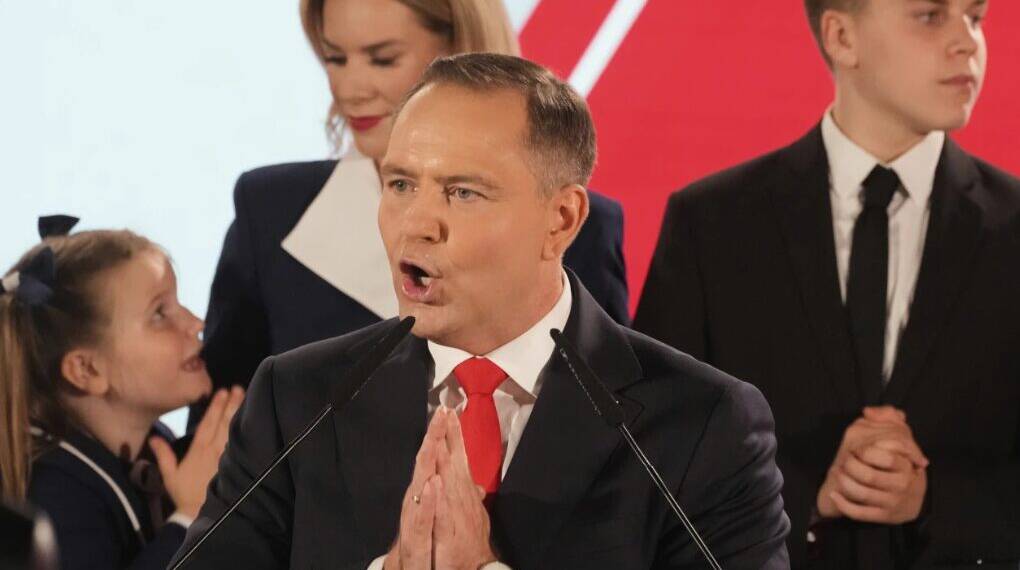The election of Karol Nawrocki as Poland’s next president, with a razor-thin margin of 50.89% to 49.11%, marks a pivotal moment in the country’s political trajectory. More than just a change in leadership, Nawrocki’s win reflects the profound ideological divide within Poland — a nation balancing its historical values with contemporary pressures from its European and transatlantic alliances.
A Nation at a Crossroads
The close nature of this election illustrates just how split Poland is between two competing visions of its future. On one side stands the progressive, pro-EU platform represented by Warsaw Mayor Rafał Trzaskowski, who favors liberal reforms, deeper EU integration, and expanded civil rights. On the other hand, Karol Nawrocki embodies a conservative, nationalist orientation rooted in sovereignty, traditional values, and skepticism toward supranational influence.
This divide isn’t just urban vs. rural or young vs. old — it cuts across questions of identity, historical memory, and Poland’s role on the global stage. Nawrocki’s victory confirms that a significant segment of Polish society remains wary of rapid cultural liberalization and Brussels-led reform, preferring instead a vision grounded in patriotism and social conservatism.
The Presidency: Symbolic and Substantive
Though the Polish president’s role is largely ceremonial in day-to-day governance, the office wields meaningful power, especially through the veto. With Nawrocki now poised to assume the presidency from fellow conservative Andrzej Duda, Prime Minister Donald Tusk faces a serious challenge. Many of Tusk’s promised reforms — particularly around abortion rights, LGBTQ+ issues, and judicial independence — were already stalled under Duda. With Nawrocki in office, that gridlock is likely to continue, if not intensify.
For supporters of liberal reform, this is a bitter outcome. Yet it is also a reflection of democratic tension: a government elected to implement a centrist-progressive platform must now negotiate with a president chosen by the electorate to act as a conservative counterweight. Whether that deadlock paralyzes the system or forces compromise remains to be seen.
Nawrocki: A Controversial Yet Strategic Choice
Nawrocki is not a conventional politician. A historian and former head of the Institute of National Remembrance, he is known for promoting a nationalist reading of Polish history, particularly one that resists Soviet-era narratives and emphasizes Polish victimhood and heroism. His past — including links to a football hooligan subculture and allegations of personal misconduct — drew media attention but ultimately failed to dent his support among right-leaning voters.
To his base, Nawrocki is not a liability, but a symbol of authenticity. His lack of political polish is seen as an asset in an age of elite distrust. His image as a “fighter” — both literally and ideologically — appeals to a portion of the electorate frustrated with what they view as moral relativism and elite detachment in Brussels and Warsaw alike.
International Implications: A Balancing Act
Nawrocki’s victory may strain Poland’s relationship with both the European Union and Ukraine. His Eurosceptic posture, criticism of Ukraine’s NATO ambitions, and emphasis on Polish historical grievances could complicate Warsaw’s previously strong stance as Kyiv’s Western advocate. Poland remains vital to NATO logistics and a key supporter of Ukraine in its war against Russia. Still, Nawrocki’s views may alter that calculus, particularly regarding refugee policy and accession negotiations.
At the same time, Nawrocki’s alignment with U.S. conservatives — notably Donald Trump and his allies — suggests a pivot in foreign policy tone. While cooperation with Washington is unlikely to weaken, it may become more ideologically aligned with U.S. Republicans than with the current Democratic administration.
A Cautionary Signal for the Tusk Government
For Prime Minister Tusk, this result is a setback. His coalition government already struggles with internal ideological diversity and now faces a president who can veto reforms and appeal directly to the conservative public. Without a three-fifths parliamentary majority to override presidential vetoes, key parts of Tusk’s agenda may remain stalled until at least 2027, if not indefinitely.
This could embolden the Law and Justice party (PiS), which is now out of government but gaining renewed momentum through Nawrocki’s presidency. If Tusk’s coalition fractures under the strain of unmet expectations and growing public impatience, early parliamentary elections are not unthinkable.
Conclusion: Poland’s Pluralism — and Its Tensions
Karol Nawrocki’s win is neither a revolution nor a regression. It is a democratic expression of the deep currents running through Polish society — a pushback against rapid social change, a desire for national dignity, and a suspicion of top-down reform. At the same time, the closeness of the vote underscores that liberal, urban, and progressive forces remain equally potent.
Poland’s challenge in the years ahead will be to govern across that divide, not by denying it, but by acknowledging and negotiating it. Nawrocki must prove that his nationalism can coexist with pluralism. Tusk must show that his coalition can adapt, not just resist.
The world should watch Poland not as a cautionary tale or a beacon, but as a case study in modern democratic friction, where national identity, international alliances, and cultural change meet head-on.








